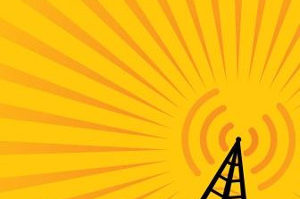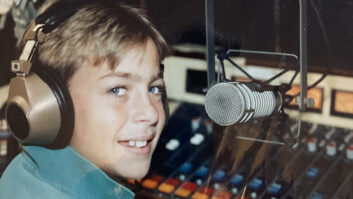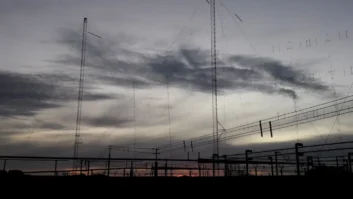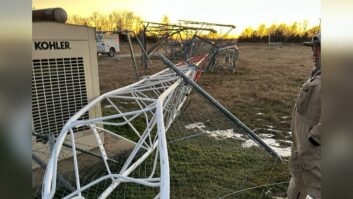
At the recent Hispanic Radio Conference in Miami, Commissioner Jessica Rosenworcel of the Federal Communications Commission made clear the vitally important role that radio plays during emergency situations by offering some harrowing examples that came to pass during last year’s hurricane season.
At the conference, which was held March 13 and 14 in Miami, Rosenworcel detailed some of the recovery efforts she recently saw in Puerto Rico in the wake of Hurricane Maria.
“[T]he damage from Hurricane Maria is still out in the open, for all to see,” she said, referring to broken traffic lights, closed businesses and statistics that say that as many as 400,000 residents still do not have electricity. “That means American citizens are still living without necessities like health care, hot meals and basic communications,” she said. “So not only has this prolonged power outage cut into the economic security of the island, it has put people’s lives at risk.”
Despite the damage, what she also saw was resilience in the people she encountered, pride in the island and a radio industry that is telling those stories — despite the damage that occurred to television and broadcast stations all across the island.
Radio station WKAQ(AM) is one of those, Rosenworcel said. The station became not just a broadcaster of events during the storm, but part of the story as well. The San Juan station broadcasts a Spanish-language talk radio format on 580 kHz. The studio itself is housed a modern building in Guaynabo that is covered with a big expanse of circular glass. When the winds arrived, the glass top of the building shattered. As the rain came down, it turned the stairs into a virtual waterfall.
But station’s staff had hunkered down to provide news and information. When the building began to break apart, staffer Ruben Sanchez paused a live interview with Gov. Ricardo Rossello to assure his listeners they would do what they could to stay on air.
The station started to relocate staff and broadcasting capability to a transmitter site nearby, but when they arrived, the area around the squat cement building has been flooded by a nearby creek. “That didn’t stop WKAQ,” Rosenworcel said. The staff secured a truck with large off-road tires, drove up to the transmitter, and set up a studio in a small room with an old linoleum floor and a single fan. “They dove back in, doing what radio does best,” Rosenworcel said. “Providing essential content for the community they serve.”
The station also served as a receiving station for calls from the mainland U.S. for those looking for their loved ones during and after the storm.
Rosenworcel also shared the story of station WAPA in San Juan, which opened its doors to its own employees and other members of the community after the storm. Residents came to request information about their loved ones, and all of those requests were read on the air. “In fact, the station still has the cardboard boxes where they kept the notes written on stray scraps of paper from anyone and everyone who stopped by the station seeking help and assistance,” she said.
“The stories from those visits are unbelievable,” Rosenworcel said, pointing to a story about a cardiac surgeon that visited the station seeking the mother of a newborn in need of heart surgery in order to authorize placing the infant on a flight for medical evacuees. As a result of his on-air plea, relief workers were able to track her down.
The station also managed to help an elderly home that had run out of diesel for its generator, helped a kidney patient get a ride to a dialysis center, helped get medicine delivered to those in need, and worked to facilitate calls so that first responders could rescue those trapped on the roofs of their homes due to rising water.
“As every broadcaster I visited with on the island told me, they were no longer competing for listeners, they were a team with one goal — staying on the air — and serving the community,” Rosenworcel said. “I don’t think you’ll find a better demonstration of radio’s commitment to the public interest than that.”
“We need to remember that when the unthinkable occurs, we turn to radio,” she said. “It’s a public safety force. It keeps us connected when too many of our other connections fail. I think it’s essential for the Federal Communications Commission to keep this in mind with everything we do.”
Rosenworcel said she remains committed to ensuring that the FCC works to promote media diversity, localism and competition through its policies. Over her objections, she said, the current leadership has given the green light for more consolidation and less diversity of ownership, she said, adding that today only 5% of AM radio stations and 4% of FM radio stations are owned by Hispanics or Latinos.
“Let’s acknowledge those numbers are too small,” she said. “They do not fully reflect the diversity of our country.”
Potential solutions, she said, may involve bringing back the minority tax certificate program as well as continuing to require broadcast stations to certify that their advertising sales contracts contain nondiscrimination clauses. She announced that the American Association of Advertising Agencies recently released a “Fair Play” charter that asks its members to recommit to ending redlining practices that discriminate against minority media outlets.
Although we live in a world with so many platforms and so many ways to listen, there is still something special about a voice in the air, Rosenworcel told the crowd.
“There is still something extraordinary about how a single signal can reach out and connect with so many of us,” she said. “I saw it clearly in Puerto Rico — and I know that power resides in the work you do every day.”












